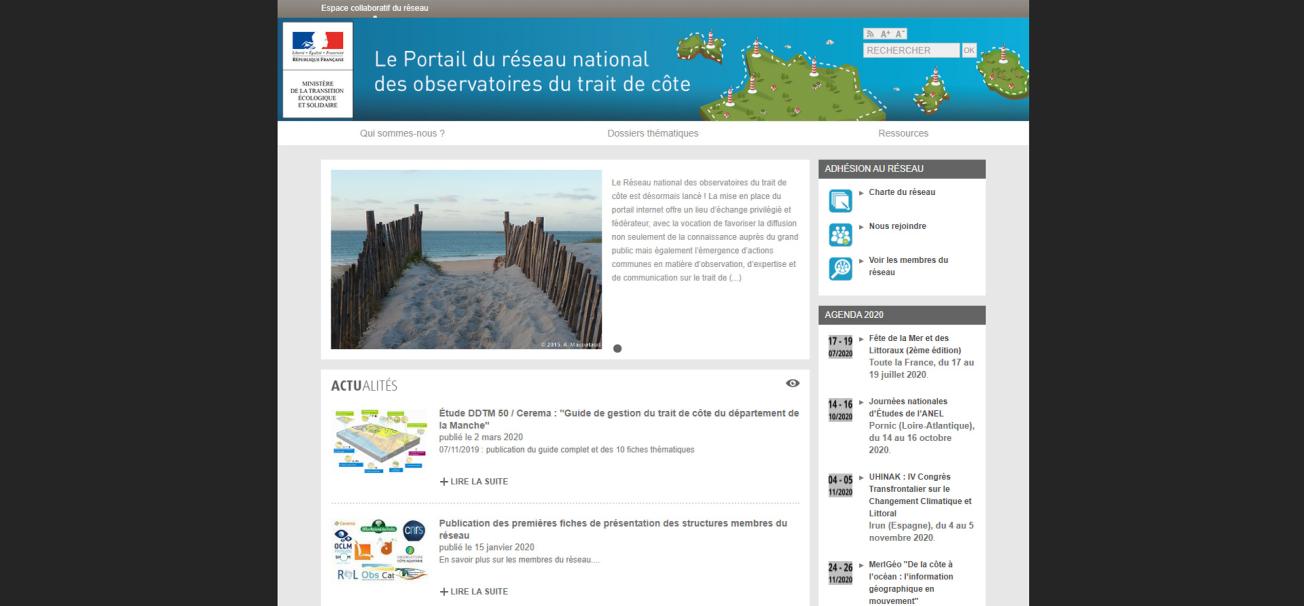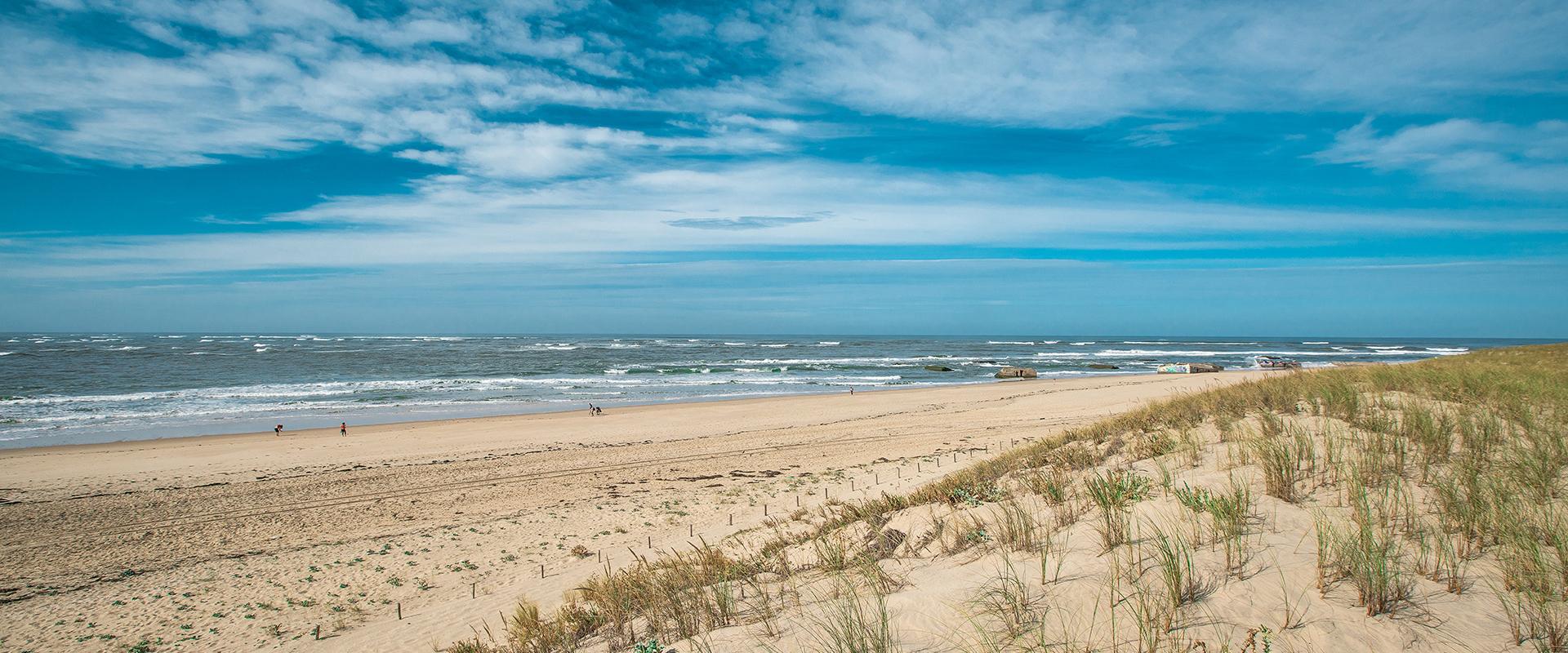
Website of the French national coastline observatories network.
© RNOTC
Our already fragile coastlines are directly exposed to the impacts of climate change effects: rising sea levels and increasingly frequent storms are affecting patterns of coastal flooding and coastal erosion. Coastline change is a critical issue that the State and local government in coastal areas have to anticipate.
This is the context for which the French coastlines observatories network was set up. The BRGM was involved from a very early stage in its establishment.
A national network to federate local coastline observatories
Data on coastlines are acquired locally, by organisations of different types often called "observatories". They are organised independently of each other to address specific and varied needs.
It became apparent that they would need to be more closely connected in order to strengthen their activities, distribute the knowledge acquired more widely and also to gain a more global perspective on coastal phenomena. The French national network of coastline observatories (RNOTC) was thus established with the aim of encouraging sharing and distribution of data relating to long-term coastline changes.
The RNOTC is in line with the goals of the French national strategy for integrated coastal management, adopted in 2012.
A website to pool knowledge on coastlines
The network's website, now on line, is a forum for exchanges designed to promote not only knowledge distribution for the public but also the emergence of common observation, expertise and communication activities on coastlines.
It complements the websites of each of its members, providing a portal for users to find out about their activities and to access their common output and useful resources. Finally, it aims to attract new members to the network.
Visitors to the site can consult:
- a presentation of the network and its members, with news about their various activities,
- synoptic files on different themes supported by reliable data (key figures, focus on different national or local actions, etc.),
- available resources (publications, videos, useful links, etc.),
- a diary of symposia, meetings, events, etc.,
- a members-only space with tools to facilitate data exchanges and collaborative work.







